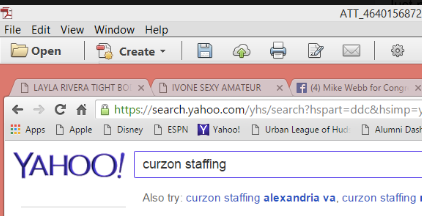As we noted yesterday and Monday, eDiscovery Daily published 74 posts related to eDiscovery case decisions and activities over the past year, covering 62 unique cases! Yesterday, we looked back at cases related to cooperation, disputes about discovery, eDiscovery cost reimbursement, form of production disputes, privilege disputes and (once again) the ubiquitous Apple v. Samsung case. Today, let’s take a look back at cases related to social media discovery, technology assisted review and the first part of the cases relating to sanctions and spoliation.
We grouped those cases into common subject themes and will review them over the next few posts. Perhaps you missed some of these? Now is your chance to catch up!
But first, if you want to learn more about what every attorney should know about eDiscovery in 2017, click here.
SOCIAL MEDIA DISCOVERY
In addition to our usual cases where defendants want to discover social media data of the plaintiffs suing them, we have two heavyweight companies that wanted to mine for prospective jurors’ social media information (until the judge stepped in, that is). Here are three cases related to discovery of social media data:
If Google and Oracle are Going to Mine for Jurors’ Social Media Info, They Have to Inform the Court: When the big guys sue each other, the cases last forever. We’ve been covering developments in the Apple v. Samsung case since July 2012, and that case is still going on. Another case that we’ve covered a long time ago (way back in November 2011) is Oracle Corp. v. Google Inc. and that case is still going on too. In that case, with a trial approaching, the judge has told lawyers to disclose Internet and social media research about jurors to the court or agree not to conduct it.
Court Orders Plaintiff to Perform a “Download Your Info” From Facebook: In Rhone v. Schneider Nat’l Carriers, Inc., Missouri Magistrate Judge Noelle C. Collins ordered the plaintiff to disclose a complete list of her social media accounts to the defendant and also provide a “Download Your Info” report from her Facebook account from June 2, 2014 to the present within fourteen days and ordered the defendant to disclose to the plaintiff any and all posts, photos or other media from the report it intends to use in support of its defense.
Court Compels Plaintiff to Provide Social Media Account and Activity Data: In Waters v. Union Pacific Railroad Co., Kansas Magistrate Judge Kenneth G. Gale granted the defendant’s motion to compel the plaintiff to produce account information associated with his social media accounts as well as postings from the dates he missed work in conjunction with his injury claims against the defendant. Judge Gale also granted most of the components of the plaintiff’s motion to compel against the defendant for various discovery requests.
TECHNOLOGY ASSISTED REVIEW
Quite an active year with regard to cases involving technology assisted review (TAR), with the first English case approving the use of TAR and the judge in the first ever TAR case refusing to order a party to use TAR among the cases. Here are five cases related to TAR:
Predictive Coding is Officially Approved in First English Case: Last month, in Pyrrho Investments Ltd v MWB Property Ltd, citing the landmark DaSilva Moore case (among other authorities), Master Matthews approved the use of predictive coding, due to the “enormous” expense of manually searching through the three million electronic documents associated with the case. This is the believed to be the first time an English court has approved the use of predictive coding.
Cooperation in Predictive Coding Exercise Fails to Avoid Disputed Production: In Dynamo Holdings v. Commissioner of Internal Revenue, Texas Tax Court Judge Ronald Buch ruled denied the respondent’s Motion to Compel Production of Documents Containing Certain Terms, finding that there is “no question that petitioners satisfied our Rules when they responded using predictive coding”.
Judge Peck Refuses to Order Defendant to Use Technology Assisted Review: In Hyles v. New York City, New York Magistrate Judge Andrew J. Peck, indicating that the key issue before the court in the discovery dispute between parties was whether (at the plaintiff’s request) the defendants can be forced to use technology assisted review, refused to force the defendant to do so, stating “The short answer is a decisive ‘NO.’”
English Court Rules that Respondents Can Use Predictive Coding in Contested Case: In Brown v BCA Trading, et. al., Mr. Registrar Jones ruled that, with “nothing, as yet, to suggest that predictive coding will not be able to identify the documents which would otherwise be identified through, for example, keyword search”, “predictive coding must be the way forward” in this dispute between parties as to whether the Respondents could use predictive coding to respond to eDisclosure requests.
Defendant Not Required to Use Predictive Coding by Court: In the case In re Viagra Products Liability Litigation, California Magistrate Judge Sallie Kim, noting that other courts had declined to force a party to use predictive coding, denied the plaintiff’s motion to force the defendant to use predictive coding instead of its preferred approach using search terms.
SPOLIATION / SANCTIONS
Of course, once again, the topic with the largest number of case law decisions related to eDiscovery are those related to sanctions and spoliation issues (24 out of 62 total cases for 38.7% of all cases covered). Are there really more of these cases or do I just find them more interesting? You decide. Anyway, here are the first eight cases, including one where the sanction was reversed after the adoption of Rule 37(e):
Court Orders Sanctions Against Defendant for Spoliation of Emails and Other Documents: In Ocwen Loan Servicing, LLC v. Ohio Public Employees Retirement System, the Court, determining that the defendant had spoliated data, found that the plaintiff had not demonstrated sufficient facts to warrant striking the defendant’s affirmative defenses, but opted to order an adverse inference instruction and also ordered the defendant to pay the plaintiff’s attorneys’ fees and costs in preparing the instant motion for sanctions.
Court Gives Plaintiff 21.5 Million Reasons for Not Spoliating Emails: In Hausman v. Holland America Line-U.S.A., et al., Washington District Judge Barbara Jacobs Rothstein vacated a $21.5 million verdict awarded to a man injured by a closing cruise-ship door in 2011 and ordered a new trial, after the plaintiff’s former assistant alleged that he deleted emails that could hurt his case.
Appeals Court Upholds Terminating Sanctions For Wipe of Cell Phone: In Woodell v. Bernstein, et. al., the California Court of Appeals affirmed the judgment of the trial court, which imposed terminating sanctions against the plaintiff for spoliation of evidence and dismissed his lawsuit with prejudice after the plaintiff had wiped his cell phone, which was key to the case.
Changes in Federal Rules Result in Reversal of Adverse Inference Sanction: In Nuvasive, Inc. v. Madsen Med. Inc., California Chief District Judge Barry Ted Moskowitz, considering new standards imposed under recently amended Federal Rule of Civil Procedure 37(e), granted the plaintiff’s motion for an order vacating the Court’s previous order granting (in part) the defendants’ Motion for Sanctions for Spoliation of Evidence.
Alteration of Domain in Produced Emails Leads to Sanctions for Plaintiffs: In CAT3, LLC v. Black Lineage, Inc., New York Magistrate Judge James C. Francis IV, ruling that emails produced by the plaintiffs were “intentionally altered”, ordered that the plaintiffs would be precluded from relying on their version of those emails to demonstrate their case and that the plaintiffs would bear the “costs, including reasonable attorney’s fees, incurred by the defendants in establishing the plaintiffs’ misconduct and in securing relief.”
Our Nation’s Largest City is Not Immune to eDiscovery Sanctions: In Stinson v. City of New York, New York District Judge Robert W. Sweet granted in part and denied in part the plaintiffs’ motion seeking sanctions for spoliation of evidence against the defendants for failure to issue a litigation hold, opting for a permissive inference rather than a mandatory adverse inference sanction against the defendants.
Court Rules Plaintiff’s Duty to Preserve Did Not Extend to Employee’s Internet History: In Marten Transport, Ltd. V. Plattform Advertising, Inc., Kansas Magistrate Judge Teresa J. James denied the defendant’s Motion for Spoliation Sanctions, ruling that, although the plaintiff had a duty to preserve relevant ESI as of Fall 2013, that duty to preserve did not extend to the internet history of one of its employees until June 2015, and by then the internet history was lost.
Defendants Claim of Lightning Strike and Power Surge Doesn’t Save Them from Sanctions: In InternMatch, Inc. v. Nxtbigthing, LLC, et. al., California District Judge Jon S. Tigar, finding that the defendants “consciously disregarded their obligations to preserve relevant evidence” when they discarded various electronic devices after experiencing an alleged power surge without checking to see if they could recover any files from them, granting an adverse inference instruction sanction and plaintiff’s attorneys’ fees.
Tomorrow, we will cover the remaining cases related to sanctions and spoliation. Stay tuned!
Want to take a look at cases we covered the previous five years? Here they are:
- 2015: Part 1, Part 2, Part 3, Part 4
- 2014: Part 1, Part 2, Part 3, Part 4
- 2013: Part 1, Part 2, Part 3, Part 4
- 2012: Part 1, Part 2, Part 3, Part 4
- 2011: Part 1, Part 2, Part 3, Part 4
So, what do you think? Did you miss any of these? Please share any comments you might have or if you’d like to know more about a particular topic.
Disclaimer: The views represented herein are exclusively the views of the author, and do not necessarily represent the views held by CloudNine. eDiscovery Daily is made available by CloudNine solely for educational purposes to provide general information about general eDiscovery principles and not to provide specific legal advice applicable to any particular circumstance. eDiscovery Daily should not be used as a substitute for competent legal advice from a lawyer you have retained and who has agreed to represent you.








